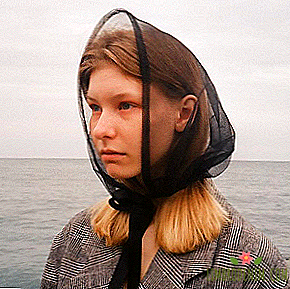Home: Books as Salvation
No matter how many say about the death of books, these large arrays of text without bright hyphae after each paragraph and like buttons under each footnote are alive. And we, incidentally photographing on Instagram and following on Twitter, still understand: you need to finish reading the "Benevolent Women" and look at the dubious "Fifty shades of gray." Starting this week, the son of a librarian, a journalist and infojanki Ilya Burlakov will talk about new books (wait on Thursday). Below is his introductory column. | Ilya Burlakov journalist |
guaranteed. You can feel like a rat, which was given a remote control of the pleasure center directly through the brain, with any income and in any cultural layer. Information is not accidentally ruled by this ball of satiety, it accelerates the "positive" on steroids through the veins of humanity. The ability to overload, reduce productivity and detract from the important talked about for thousands of years before the book Future Shock (Alvin Toffler, 1970) established the term infobesity ("obesity"). But perhaps only in the last decade, the process of information consumption has become so “cloying”. In social networks it is customary to document only the positive moments of your life, computer games do everything so that the player does not get confused and constantly reaches the "epic win". Do not get hooked on such a needle is very difficult. We switch between multimedia windows and unexpectedly completely immerse ourselves in one window. Psychiatrists call it ADHD (attention deficit hyperactivity disorder). Blogs and articles about how to find wisdom in the era of Twitter and go on an informational diet. Google introduces the Inbox Pause button so that users can catch even a sip of thin air before the next information storm. As a result, to understand the existing number of services and applications that offer their assistance in prioritizing, filtering and systematizing the information consumed, you need to create another application. |
|
|
|
Among petabytes of information, pushing us into the treacherous embrace of multitasking and stretching our day, depriving us of sleep and productive thinking, books are almost the only source that affects us quite differently. Books do not just distract the brain as another source of information. They require the active involvement of the reader's imagination, since the printed word stimulates creativity and actually introduces the reader to a state of altered consciousness. When reading books, we use critical thinking and logic to process information in order to understand the concepts and ideas communicated to us by the author. British (sic!) Scientists have proved that even six minutes of reading a book relax better than music or a walk. The book does not require that it is urgently read, as an email or status on Facebook. In the end, no one really knows what it means to "I read this book." How to evaluate the fact that you mastered a maximum of 70 percent of "War and Peace" and flipped through places about war or, on the contrary, about peace? Reading is a free and flexible process: you can read and forget a book, rediscover it, re-read it in whole or in pieces. |

A tweet, a YouTube clip or rich pictures on Instagram cause an instant, unambiguous reaction. A book is usually recommended to read at least the first fifty pages in order to understand whether it is worth reading at all. Even if these pages do not bring “confident like,” they will take those same thirty minutes of reading per day that are considered useful for the “mental muscles” exercise. What matters is not quantity, nor quality. In reading books, the approach is more important. Nassim Nicholas Taleb (The Black Swan, 2007) believes that it is not the books that you read that are more valuable, but those that you have not even opened. A home library is your search and research tool, not a measure of how much you have managed to read. In general, Taleb recommends that you absorb all sorts of news and information sources as little as possible. So you give the opportunity to filter out extra information. It is worth looking, for example, at the lists of laureates of various awards in order to understand that the names of most authors were not worth it and work to memorize. What can we say about newspapers and blogs, which today lose their relevance faster than in real time. The CEOs of large companies, getting rid of Blackberry and reading only twenty emails per day, come to a similar conclusion. Information needs to be able to filter, find the right at the moment and concentrate on it. They are supported by those who consider attention deficit disorder with a period of hyperactivity a boon. |
|
|
Some scientists find the rationale for this good in evolution. The hunter survived due to diffuse attention with a subsequent short period of hyperconcentration. Until the New Stone Age came (the Neolithic). The farmer, with his penchant for long-term tasks and plans, felt comfortable in the conditions of information overload of growing settlements. The few descendants of hunters from the stress of the technological revolution of the Neolithic were saved only by writing. Perhaps now the modern "farmer" is forced to adapt to the "hunting" world of the computer revolution. And the future is for a person who filters, switches, performs several tasks at the same time and, in particular, reads books not for idle accumulation of knowledge, but for specific conscious needs: for exercise of mental abilities, for relaxation, for searching and immersion in specific necessary information. Perhaps, the future is for information scouts, armed with access to any information, to a digital library with every book on earth and not having read to the end any of them. |











